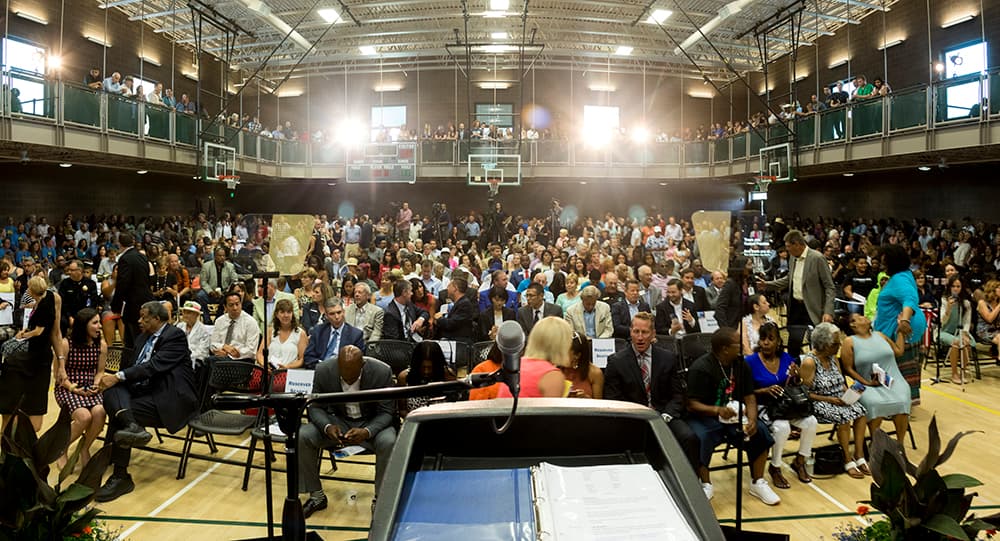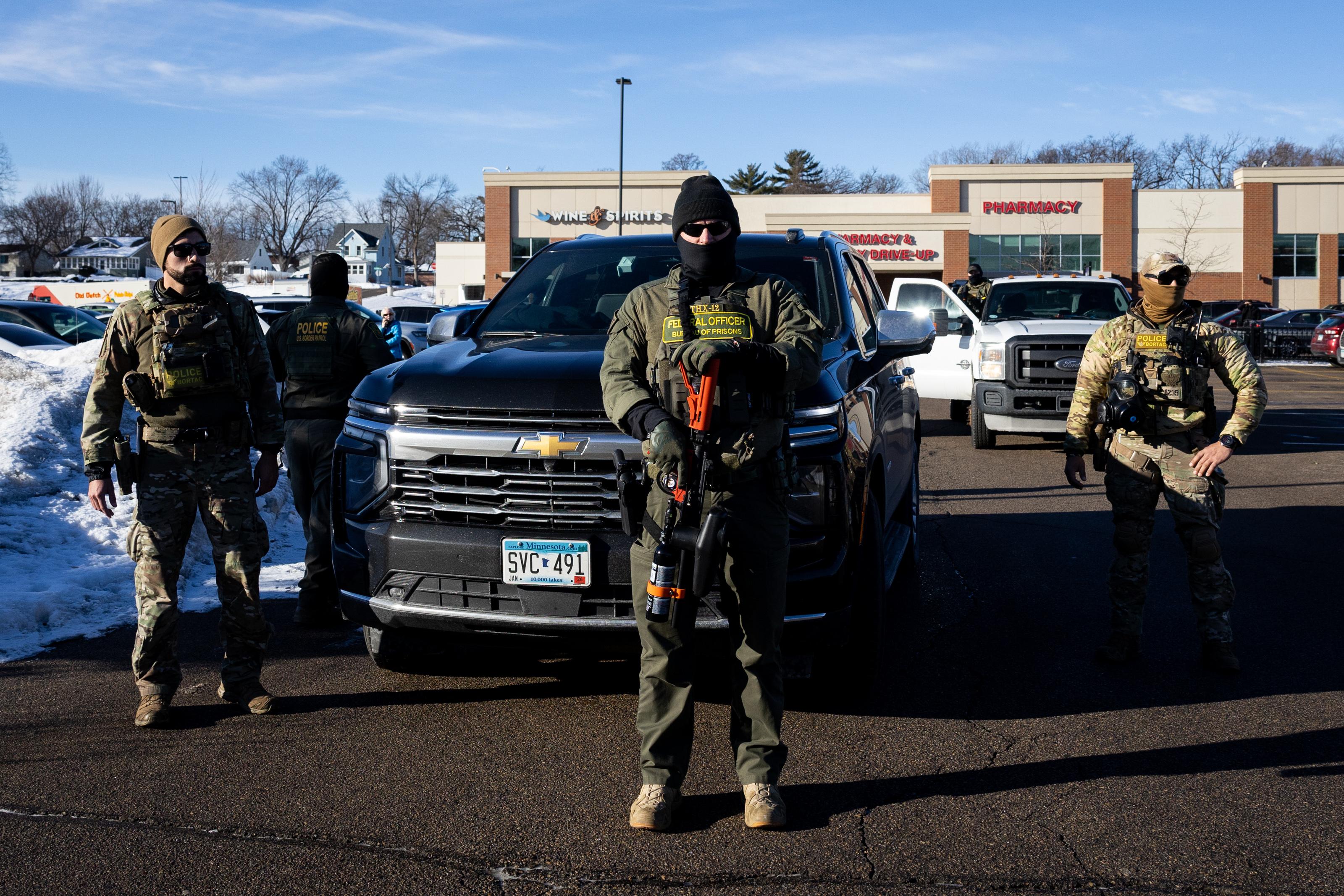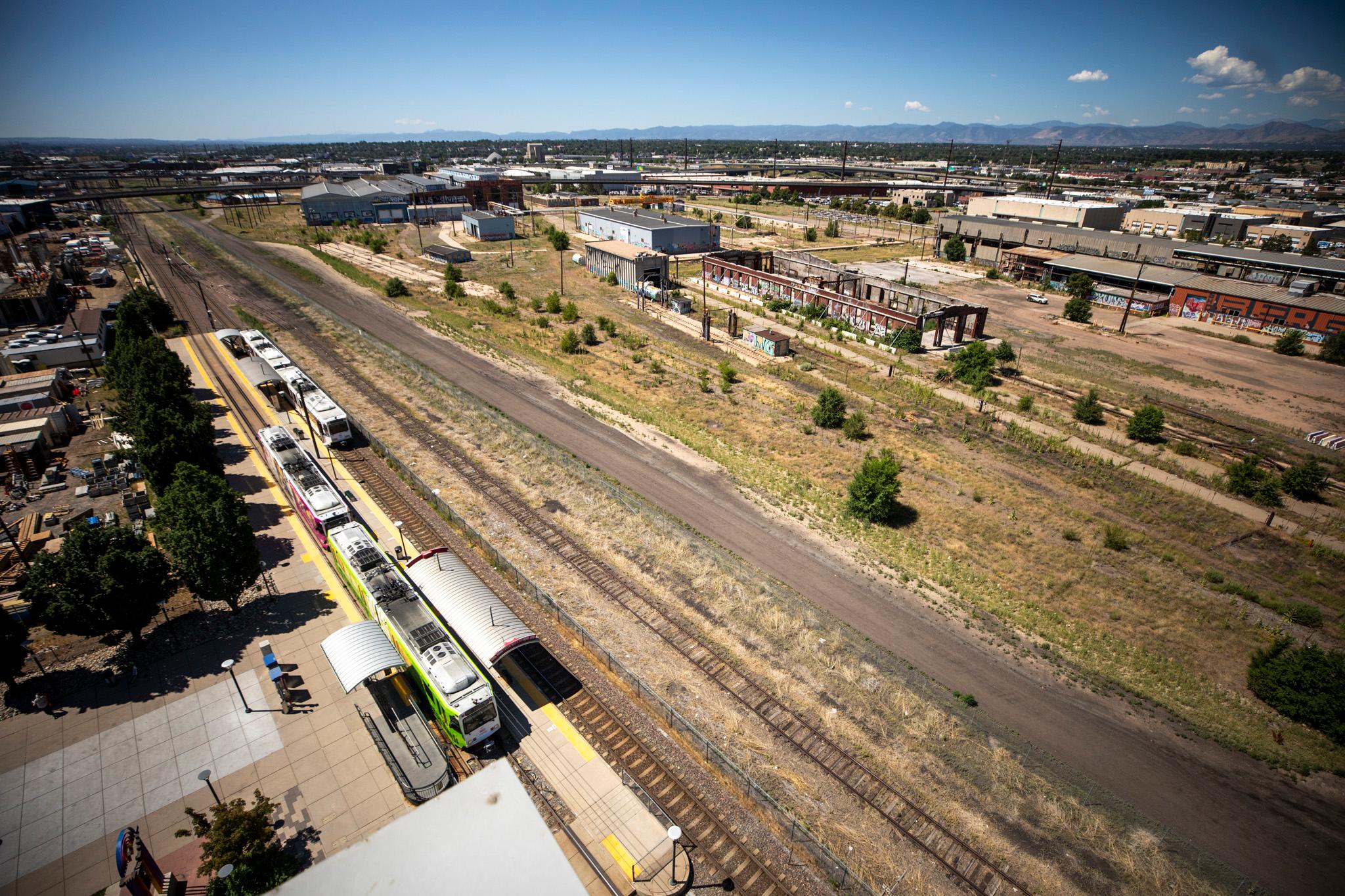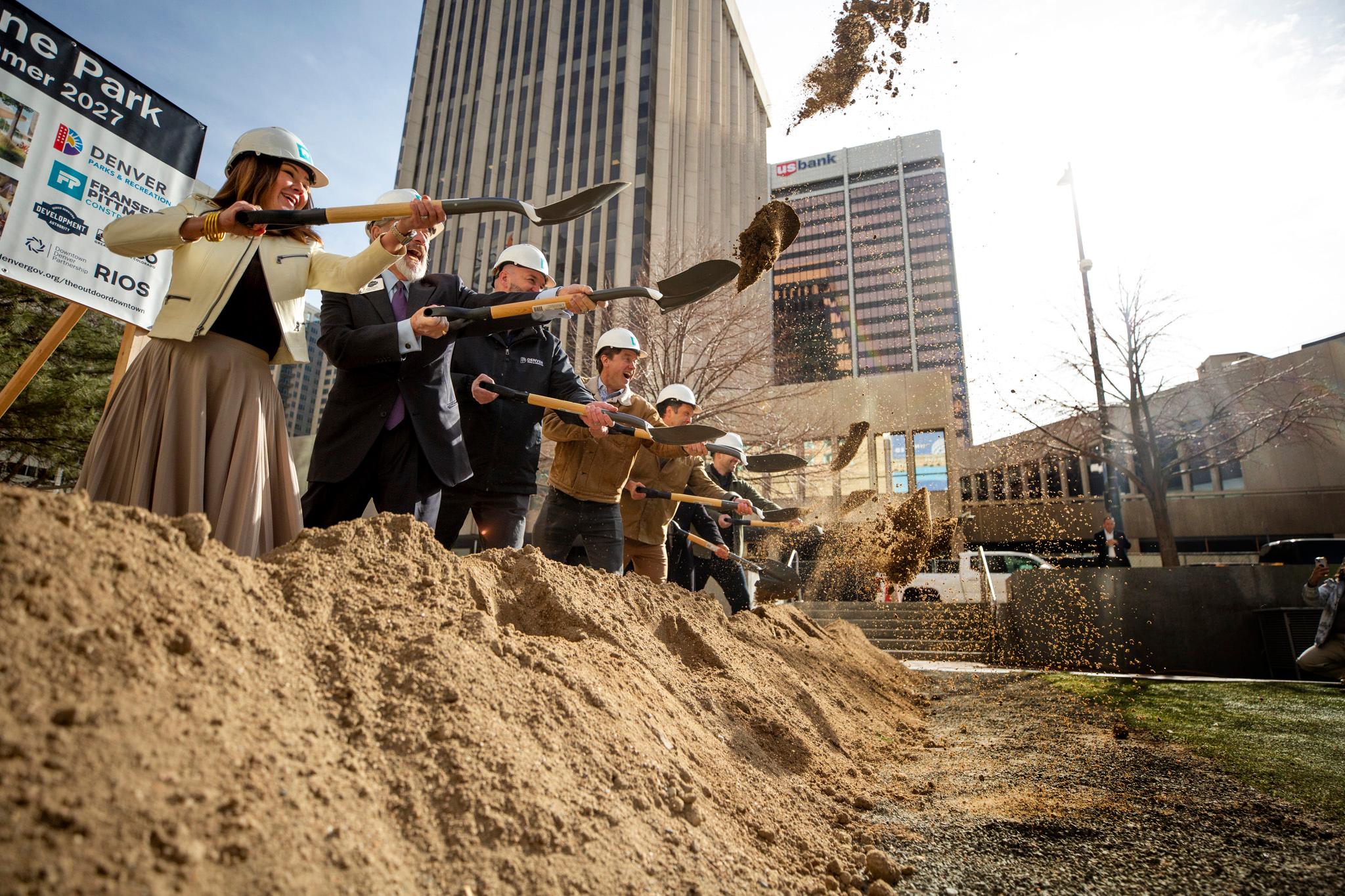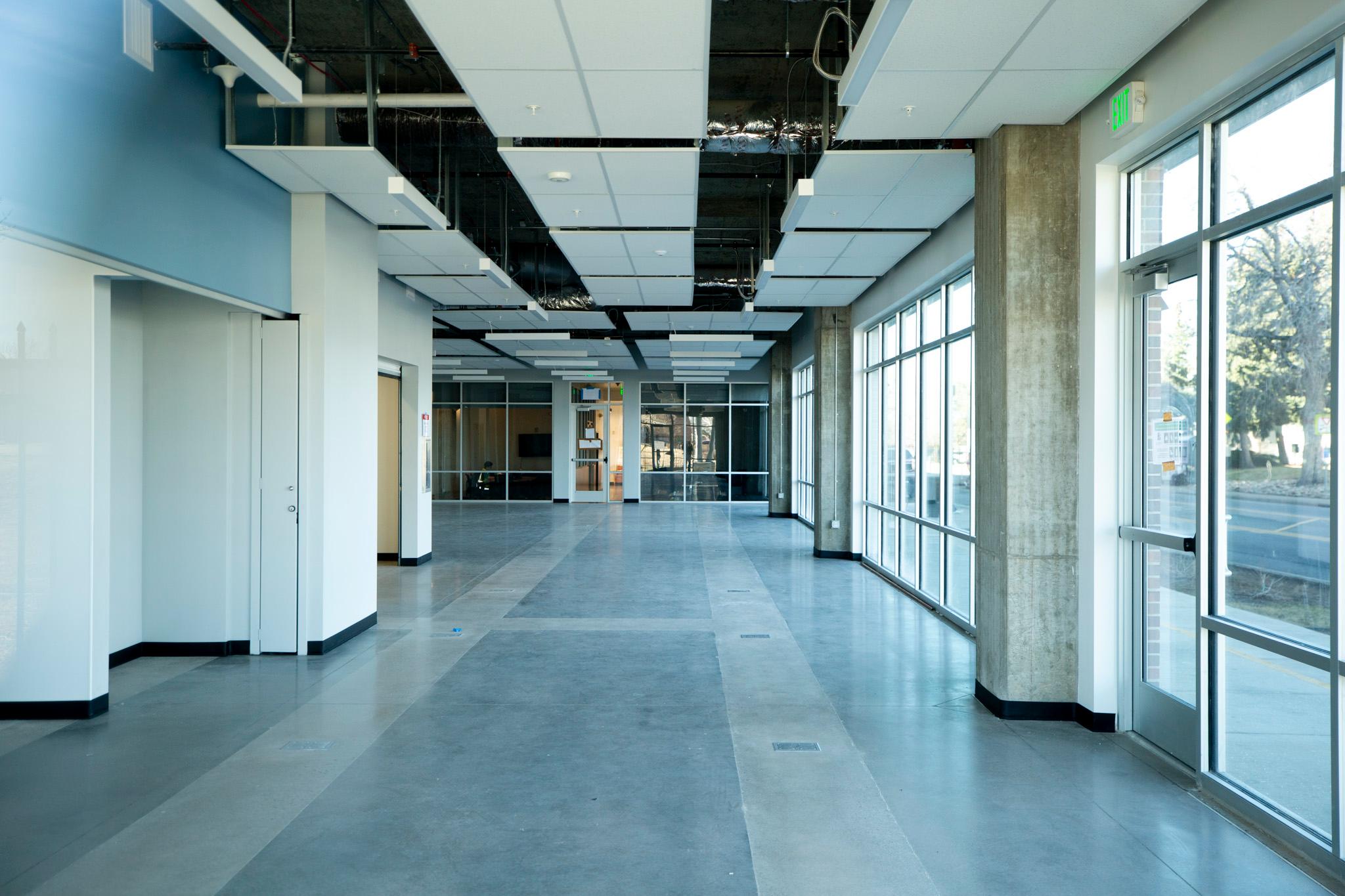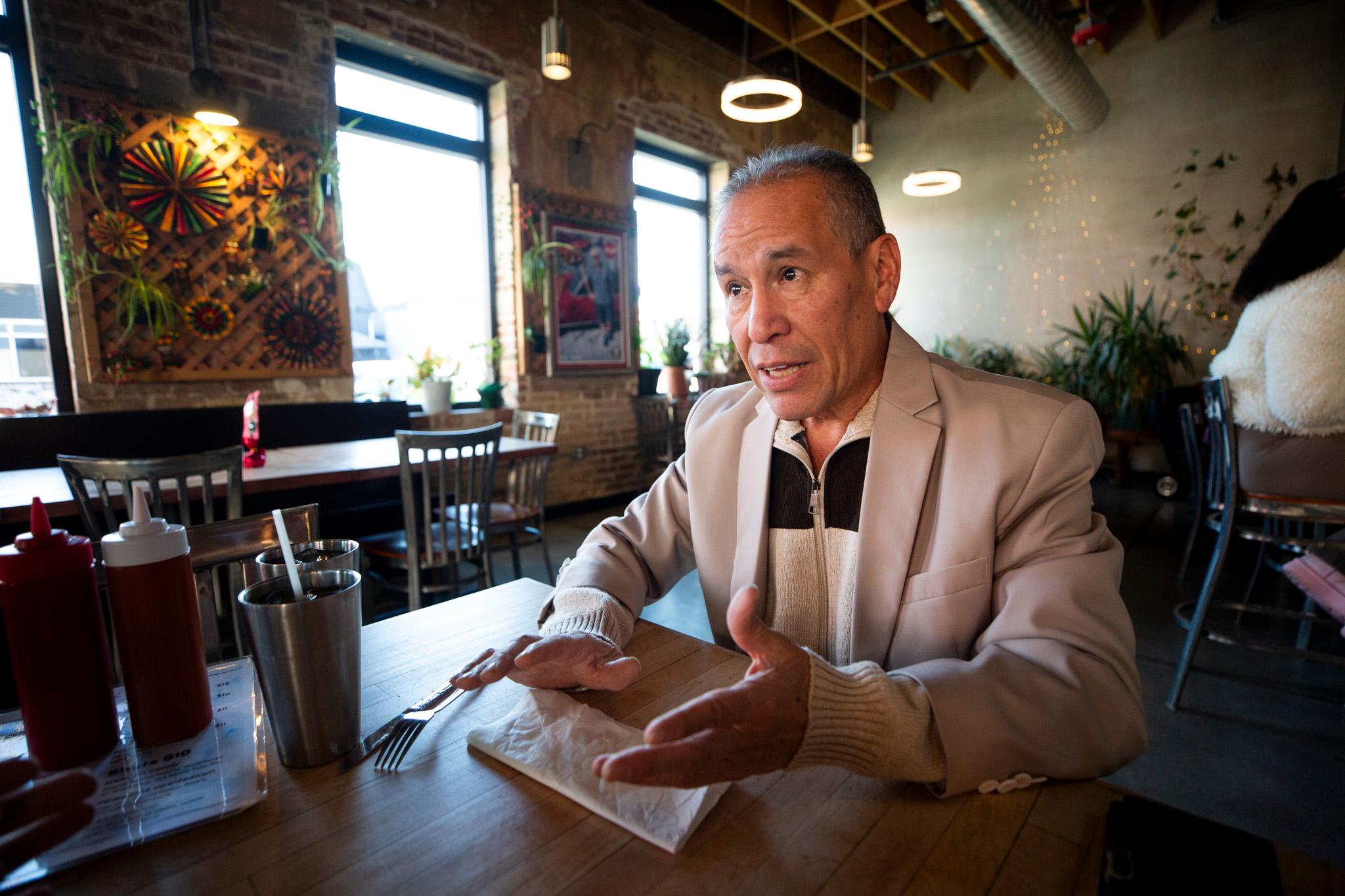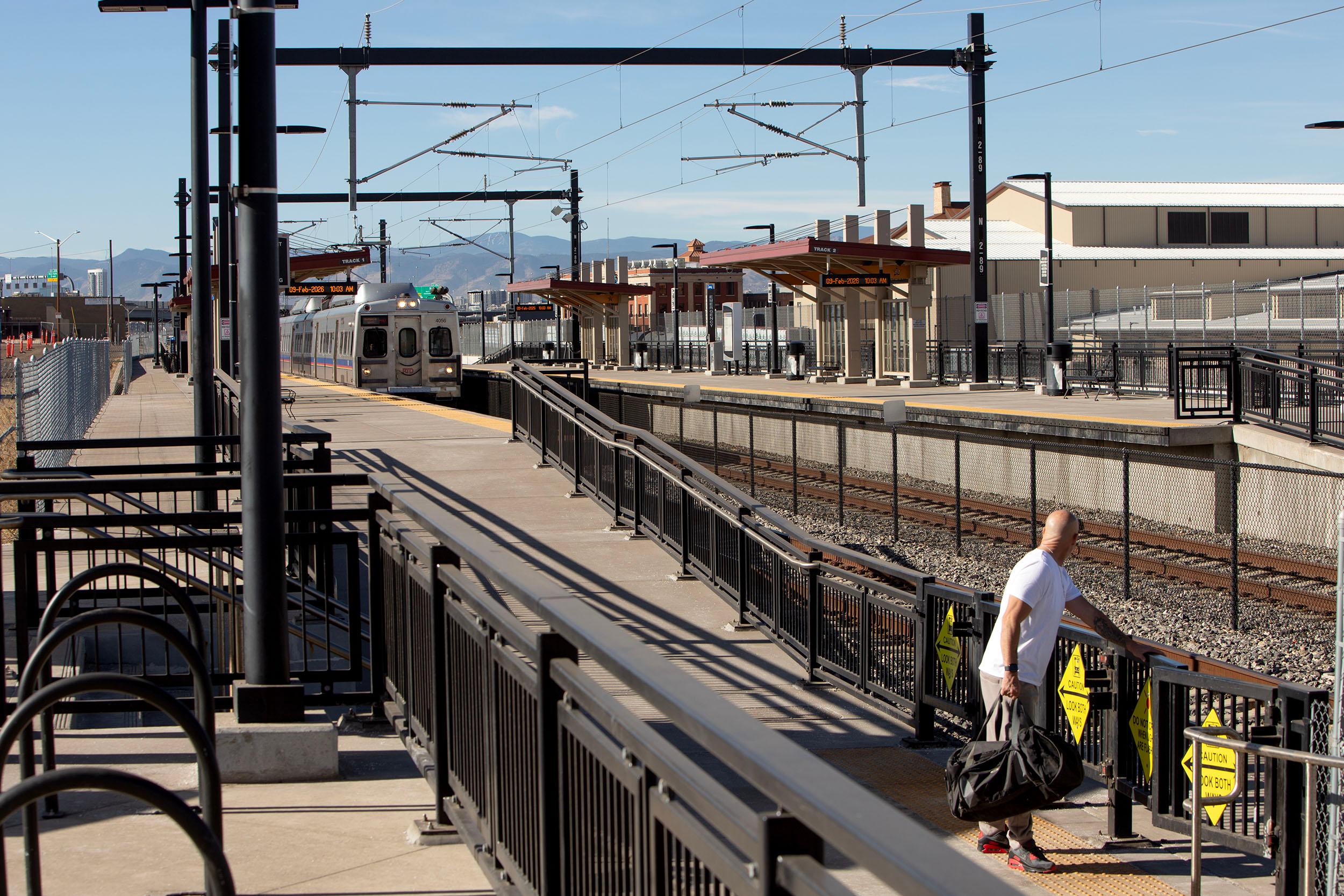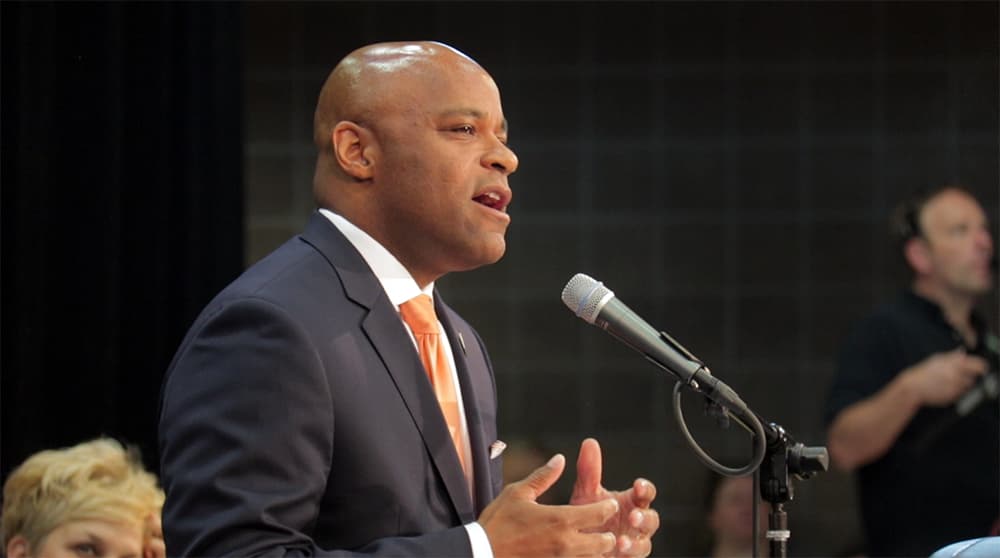
Last year, Denver Mayor Michael Hancock chose the plaza between the Westin Hotel and Denver International Airport for his State of the City address and encouraged people to travel there on the newly opened A Line train.
This year, rather than bask in the potential of shiny New Denver, Hancock highlighted his roots and the city's unmet obligations to the Denver that has always been here. Speaking at the Hiawatha Davis Jr. Recreation Center in Northeast Park Hill, Hancock said it "cuts me to the core as I witness my friends and family members get priced out of their homes and entire minority neighborhoods struggle just to get by."
"We are leading the way, and the state of our city is indeed strong. But it is not strong for everyone," he said.
Hancock said that like many Denver residents, he finds the pace of development and change "shocking" -- even though he has a lot more control over what that looks like than most Denver residents -- and he also reiterated his long-held belief that Denver's economic prosperity can be made to extend into every corner of the city.
Hancock promised that his 2018 budget will include major anti-displacement efforts, and he laid out an ambitious transportation program to reduce the number of people driving in their own vehicles. And Hancock said Denver would meet its climate goals and protect its immigrants, even if the federal government would not do the same.
Here are five key points from the speech:
On transportation:
Hancock announced a "Mobility Action Plan" that will be coordinated by a new department of Transportation and Mobility, the creation of which Hancock announced last week. There will also be a Multi-Modal Citizen Advisory Committee to guide the expansion of transit and bike and pedestrian infrastructure.
Hancock said the city needs a $2 billion investment over the next 12 years to meet its transportation goals. Some of that will come from roughly $400 million in dedicated money in the 2017 general obligation bonds and a $100 million annual general fund commitment, an increase from the roughly $70 million the city spends now.
The rest will have to come from new revenue. Hancock said in an interview after the speech that he is committed to not raise property taxes to pay for this, but every other option is "on the table," including potentially raising the cost to park downtown.
The goal is to go from 73 percent of Denver commuters driving their own car to get to work to 50 percent by 2030.
In the immediate future, Denver will partner with RTD to provide free bus passes to 1,500 high school students. Longer term, the city wants to develop bus-rapid transit on East Colfax and then other major corridors. One possibility is creating the city's own transit authority to improve the so-called "first and last mile" issues -- how people get to and from the bus stop or transit station.
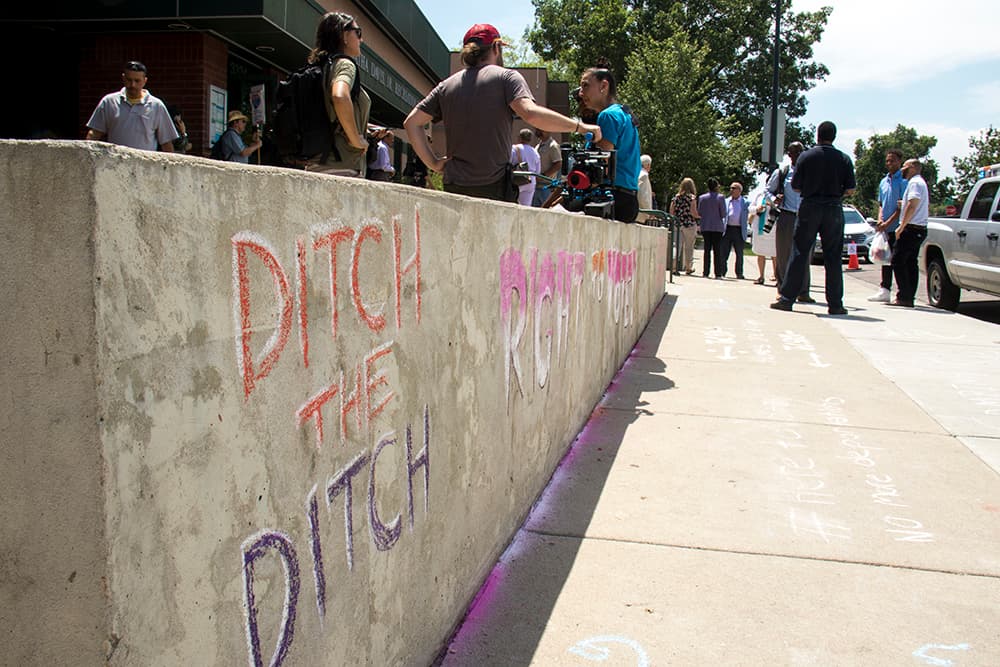
On displacement:
Hancock said the city is "pulling on every lever" to create more housing that is affordable to people earning 80 percent of area median income or less -- "banking" vacant lots for future affordable housing, financing projects near transit stations, building supportive housing for the chronically homeless. He praised the state legislature for passing construction defects reform that many hope will lead to more condo construction, and he touted last year's creation of a city affordable housing fund.
One new initiative is a pilot program to help 400 households move into units that are sitting vacant "because there’s a gap between what it costs and what people can afford." The details are still being worked out, but Denver Housing Authority, employers and apartment building owners are all involved, he said. (Why wages don't go up or rents come down in response to these market pressures remains a mystery.)
The 2018 budget will include money to reduce displacement, Hancock said. In an interview after the speech, he said some of those efforts will involve making sure residents and property owners are aware of existing programs, like help with home repairs and property tax rebates for seniors. There may also be new initiatives to help people stay in their homes in neighborhoods under significant pressure from gentrification. Many community activists say Denver could do more to beef up protections for tenants.
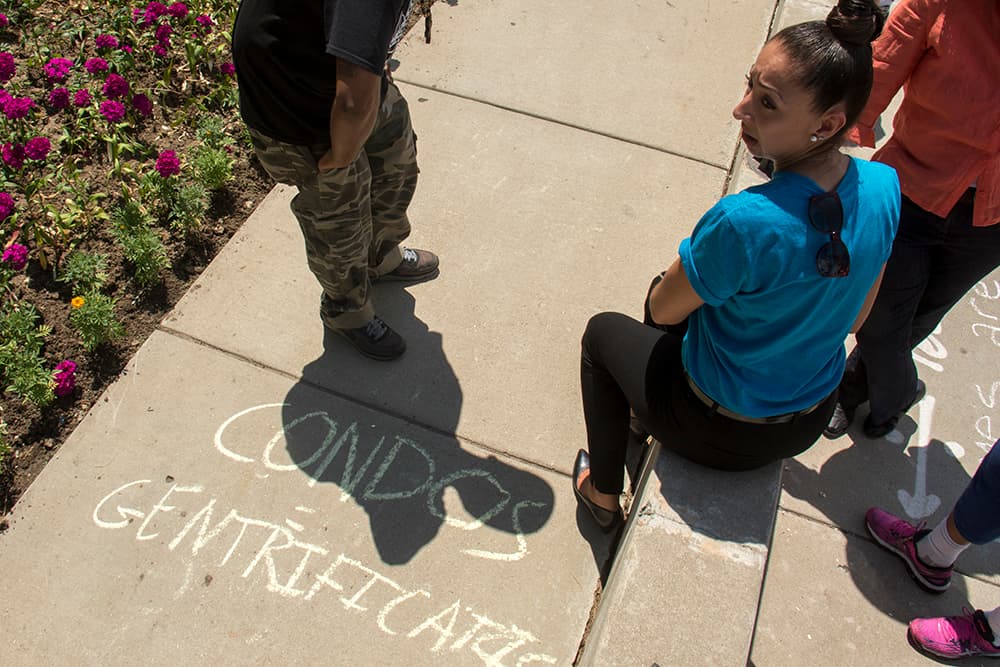
On recreation:
Denver is going to open its first new rec center in the city's urban core this fall, the $20 million, 60,000-square-foot Carla Madison Rec Center on Colfax at 1530 Josephine St. It will also have a dog park, along with all the people amenities.
Hancock is very proud of the My Denver Card program that provides free access to pools and rec centers for school-aged children. The city will now roll out a My Denver PRIME card to provide free rec center access to people 60 years old and older, as well as Medicare and Medicaid recipients.
And Denver will also renovate 13 camps and lodges in Denver's mountain parks that were originally used by Civilian Conservation Corps workers. Crews made up of veterans and people experiencing homelessness will do the work, in partnership with HistoriCorps, and the lodges will becomes places for outdoor education and weekend get-aways for families.
On community investment:
Denver voters will be asked to approve something in the range of $900 million for new projects through a general obligation bond this fall. The final project list will be decided by the Denver City Council later this summer, with the Mayor's Office expected to release his recommendations this week.
Hancock also announced a National Western Center Community Investment Fund to start at $200,000 annually. This money will come from National Western Center revenue as the center is renovated into a year-round facility focused on agribusiness and biosciences, and the communities of Globeville, Elyria and Swansea will decide how to spend it, Hancock said.
On Denver's role on the national stage:
Neither gridlock in Washington nor the change in national priorities will stop Denver from acting on its values, Hancock said.
"Cities should not be punished for Washington’s failure to fix a broken immigration system," he said. "It’s time to stop threatening our cities, stop targeting innocent people, and get to work on real solutions to bring hard-working undocumented people out of church basements, and out of the shadows.
"We have marched for women. We have marched for science. We have marched for immigrants and refugees. And every time, we have marched together."
To thunderous applause, Hancock said Denver would continue to pursue its climate goals and try to meet the Paris climate agreement commitments, even if the U.S. pulls out of the agreement.
Asked afterward if he was considering running for higher office, Hancock said being a big-city mayor is the best job in politics.
"We are getting things done, and we are not mired in partisan politics," he said.
